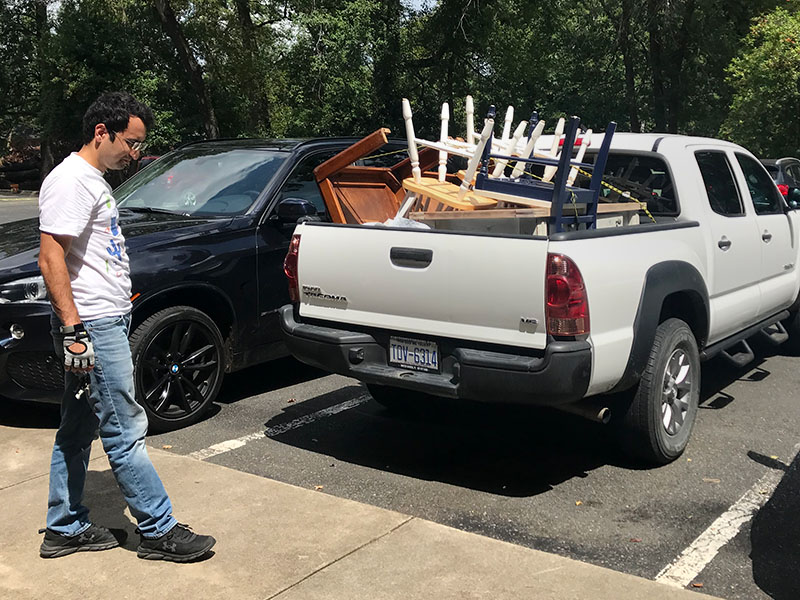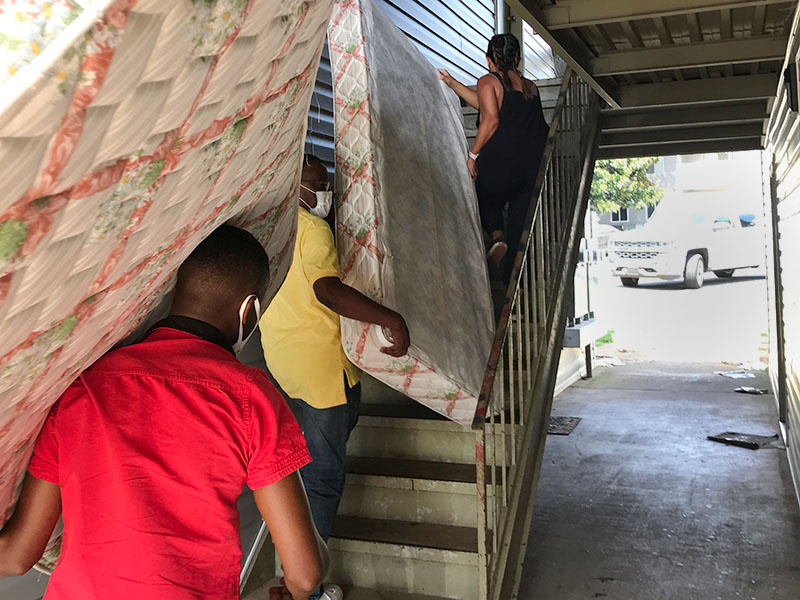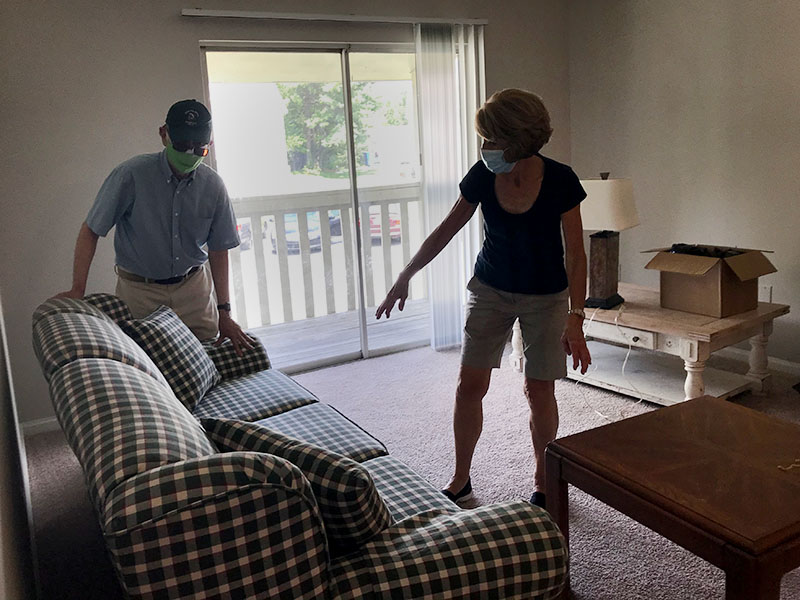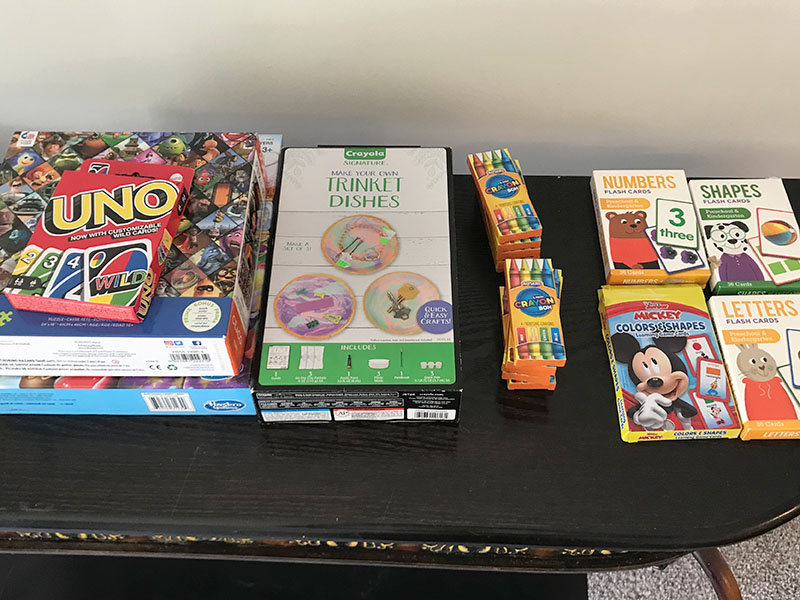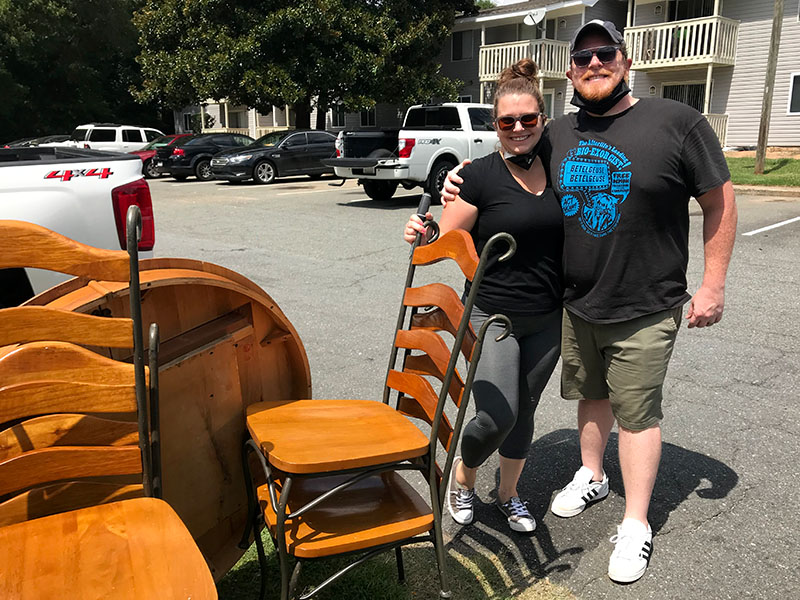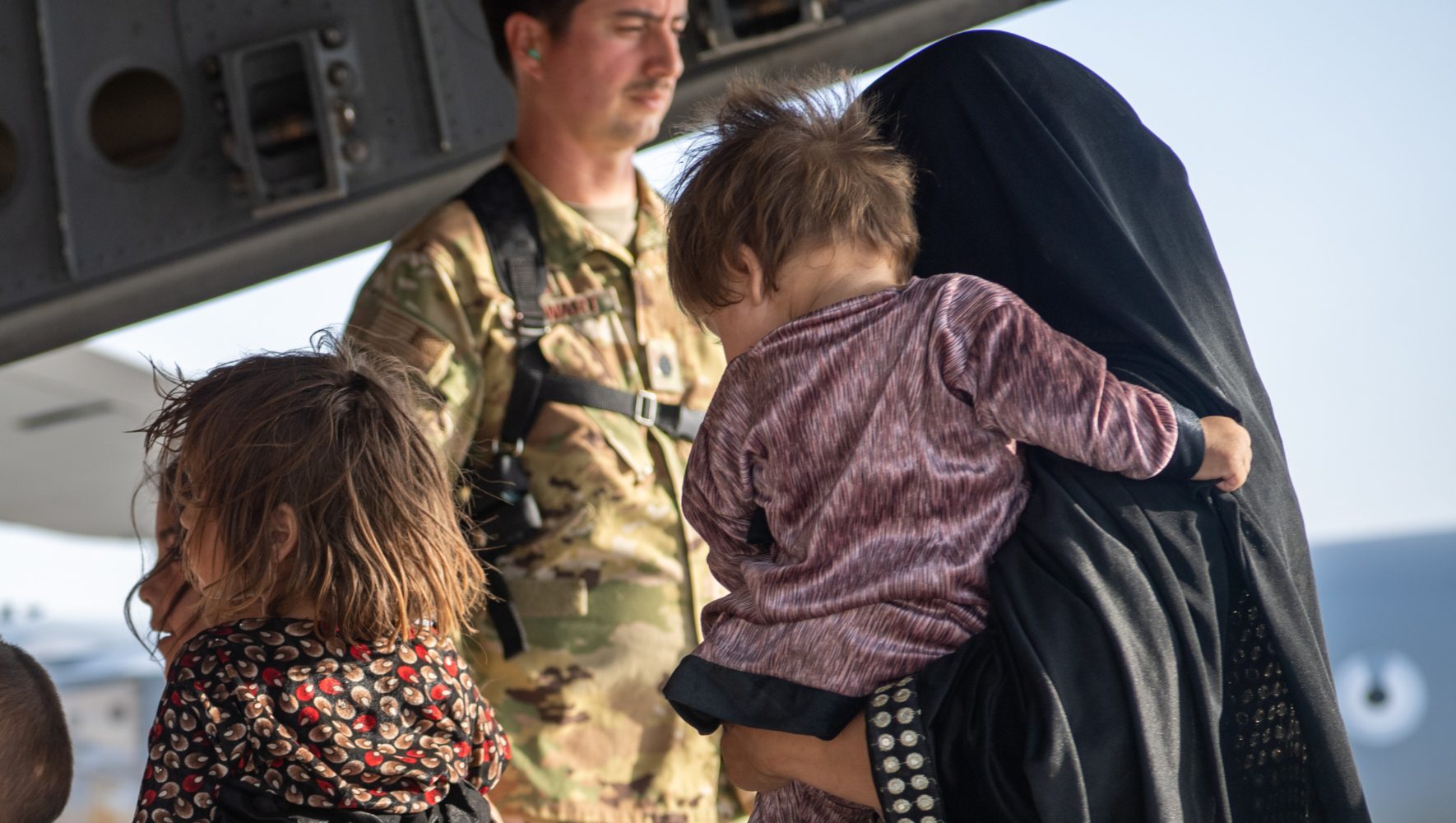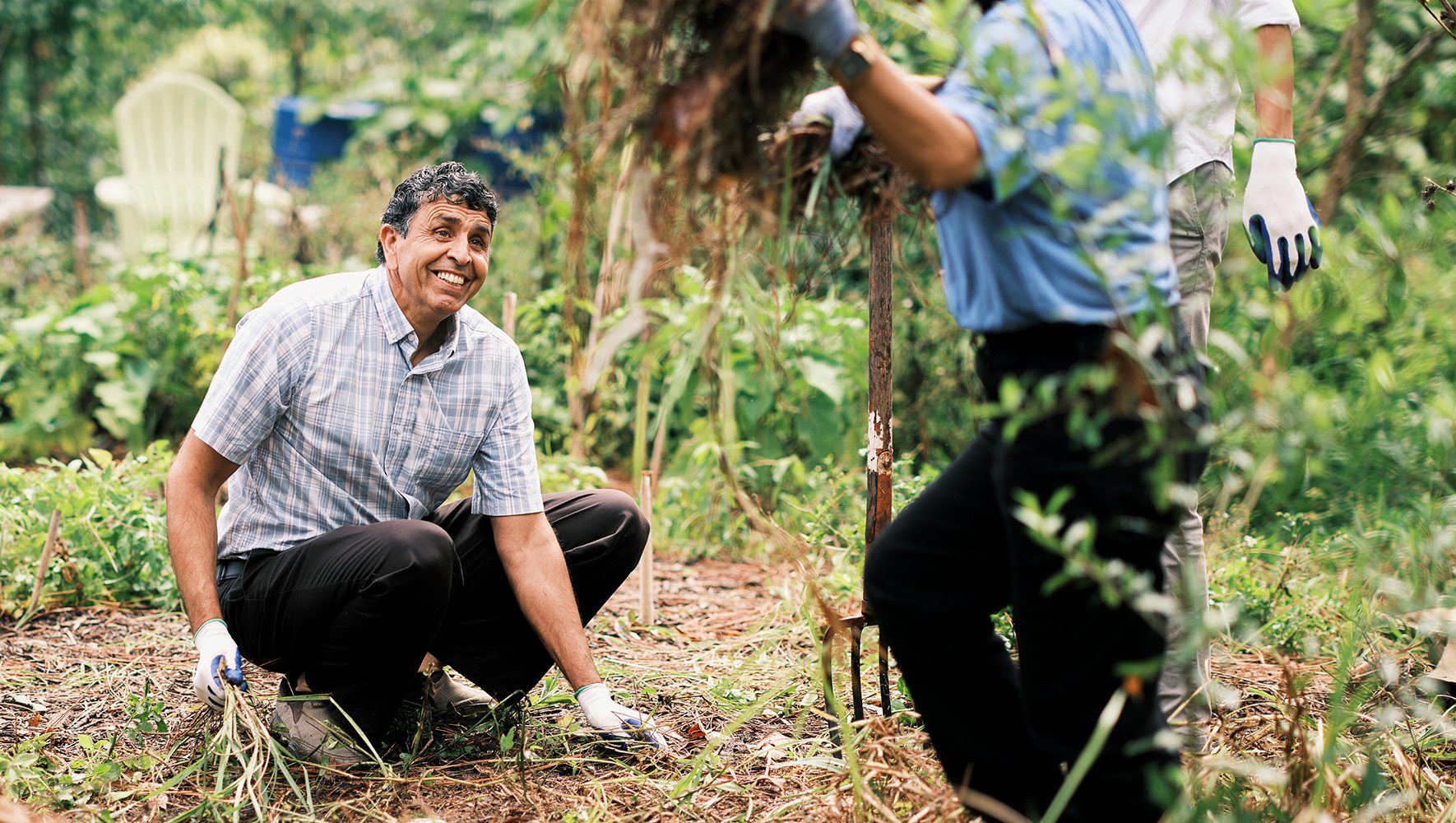Schlepping to Help Arriving Refugees Feels Good in Charlotte
By Dan Friedman, HIAS.org
Aug 30, 2021
Betsy Jenkins was watching her foster sons playing with each other in the yard when she saw the email, “Extra help needed for new refugee apartment move-in, can you help?”
“I really felt like it was the perfect way to use my resources, to use the energy that people have right now.” So Betsy, a member of board of directors of the Carolina Refugee Resettlement Agency, posted a call for help on a social media group “of like-minded women,” and pretty soon she had financial donations, a pickup truck (from her mom) loaded with household necessities and three volunteers to help schlep.
Even a switch of days because of a delay of the apartment’s readiness, didn’t deter the crew who turned up on Thursday at the Charlotte offices of CRRA. As well as Betsy, her friends and other board members, staff members and previous resettlement clients turned out to help in the hot, bright North Carolina sun. Crucially, too, there were owners of vehicles big enough to take furniture to the new apartment for an Afghan family,
“The media coverage of Afghanistan has raised attention for what we’re doing. People are sending all sorts of in-kind donations, our challenge is getting appropriate help — people with pickup trucks, time to schlep. We still need “lifters,” said Rebecca Kurtz, CRRA's program coordinator.
For CRRA, as with many of HIAS’ other resettlement partners around the country, the summer was a time of helping clients and preparation for steady growth that was suddenly, but uncertainly, accelerated by the humanitarian crisis in Afghanistan.
Kurtz explained how the resettlement process works. “We have to wait until we know of an arrival — until we have notice of travel — to start the process. We don’t sign leases in hope that an arrival will come.” Until they get notice of travel, CRRA, which has limited storage and office space, stays in touch with people who can help.
“We have relationships with a number of apartment complexes that we call regularly about inventory.” Consolidation, gentrification and COVID, though, have made even that basic part of the process difficult. The pandemic and the subsequent eviction moratorium has “led to a slowdown, almost a freeze, in the affordable housing zone.”
As CRRA prepares for Afghan families to arrive, apartment prices in Charlotte have increased, reducing the amount of affordable housing available. The units that are still available are increasingly owned by conglomerates whose new company rules don’t fit well with refugee arrivals who lack credit history or previous landlord references.
But with the impending arrival of an unspecified number of families, the community has rallied. “We’ve had many inquiries from local groups like Rotary Clubs, church groups and neighborhoods who want to do things like donation drives… the housing problem in Charlotte is fairly well known, so people are offering rooms in their homes and church groups with extra buildings offering use of them.”
In a time that’s been extremely stressful for former clients as they hear about the difficulties in Afghanistan, Kurtz says that developing these local contacts have built the Carolina community. It’s heartwarming — “Community support has been great and everybody comes to it with their own energy and motivation and intention.”
Even Jenkins’ 3-year-old joined in, to help pack the donations into the truck. “I’m a single mom, so everything is a team effort,” she asserted joyfully. “When we arrived, everyone embraced the spirit of teamwork in serving this greater purpose -- immediately someone was ‘on the kitchen,’ someone was ‘on the bedroom.’”
Jenkins was quick to point out that their Thursday did not feel like just doing housework. “It’s humbling when I get to do the apartment set up, to know it’s not just the face on the news, not just a political discussion, these are real families with real kids living real lives and we’re giving them a safe space to live.”
Especially now that families could arrive at any minute, CRRA has to manage offers of furniture, kitchen items, accommodation and schleppers to make sure that it fits the needs of whoever is arriving. On Thursday, for example, CRRA made sure that they took toys for the three young children. “It’s not required by the state department,” said Kurtz, “it’s just nice that they’ll feel at home.”
CRRA, along with everyone in the refugee resettlement world, is waiting for more concrete information about timing, numbers, locations, but Kurtz is optimistic. “We do resettlement really well. We want people to come and we’ll make them at home when they arrive.”
